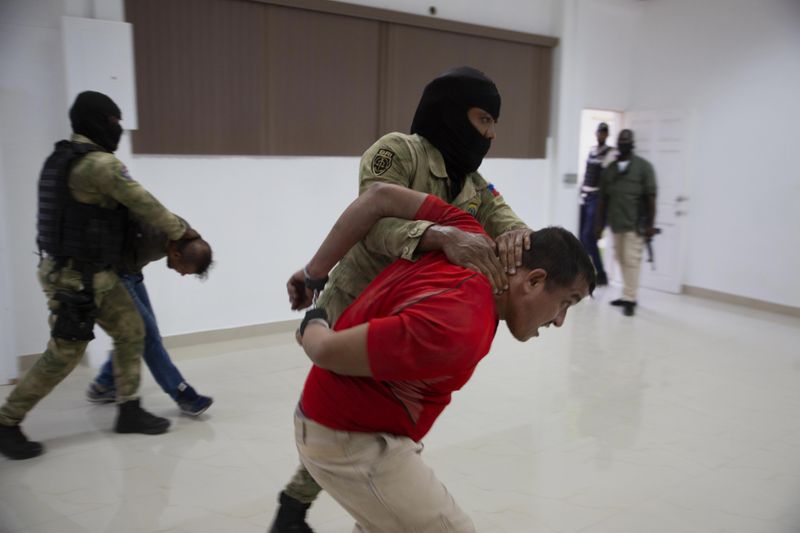Port-au-Prince: During a nighttime attack July 7, a group of assassins fatally shot President Jovenel Moise of Haiti and wounded his wife, Martine Moise, in their private residence on the outskirts of the capital, Port-au-Prince. The assassination rocked the nation, stoking fear and confusion among residents and the Haitian diaspora about what is to come.
Some details of the attack are coming into focus, but there are many that we do not know.
The assassins charged into Moise’s residence sometime after 1am in what officials described as a well-planned operation that included “foreigners” who spoke Spanish.
Moise had counted on a high level of protection, usually travelling with more than a dozen armoured cars and police guards. There are often 100 officers from the presidential guard around the president’s home, former Prime Minister Laurent Lamothe said.
Yet there had been no specific warning of Wednesday’s attack, said Haiti’s ambassador to the United States, Bocchit Edmond.
Carl Henry Destin, a Haitian judge, told the Nouvelliste newspaper that Moise was killed in his bedroom, where he was shot at least 12 times. A maid and another member of the household staff had been tied up by the attackers as they made their way to the president’s bedroom, he said.
Destin said that Moise appeared to have been shot with large-calibre guns and smaller 9-millimetre weapons.
Moise’s wife was injured in the attack and was flown to the Ryder Trauma Centre in Miami. She was in stable condition, according to the ambassador, Edmond.
The attackers’ precise motive is not yet clear.
A US citizen is among the six people who have been detained thus far, Haitian officials said Thursday, adding to their assertions that “foreigners” had been involved in the brazen assault. The ambassador, Edmond, described the assailants as “well-trained professionals, killers, commandos.”
The American suspect is of Haitian descent and has been identified as James Solages, said Haiti’s minister of elections, Mathias Pierre. Two other Haitian officials described Solages as a resident of South Florida arrested Wednesday during the initial manhunt.

Security forces engaged in a chaotic shootout late Wednesday with a group of people whom they described as suspects, though they did not immediately offer evidence linking them to the attack. Officers killed four in the group and took two into custody, they said.
Haiti’s police chief, Leon Charles, said that five vehicles that might have been used in the attack had been seized, but several of them had been burned by civilians.
Destin told Nouvelliste that the assailants had posed as agents of the US Drug Enforcement Administration. Both US and Haitian officials said they were not associated with the DEA.
A power struggle between two competing prime ministers has further fuelled tensions in the turbulent Caribbean nation of 11 million people, one of the poorest in the world.
In the hours after the killing, the country’s interim prime minister, Claude Joseph, said he was in charge, taking command of the police and army. He declared a “state of siege” for 15 days, essentially putting the country under martial law. It was not clear whether he has the legal authority to do so.
Beyond that, questions emerged over whether Joseph is, in fact, the rightful prime minister.
Just days before his death, Moise had appointed a new prime minister, Ariel Henry, who was expected to be sworn in this week. Henry has said he should be in charge of the government.
Adding to its troubles, Haiti, a parliamentary democracy, has no functioning Parliament. There are currently only 10 sitting senators out of 30; the terms of the other 20 have expired. The entire lower house is no longer sitting, because the representatives’ terms expired last year.
The head of the nation’s highest court, who might have helped bring order, died of COVID-19 in June.
from World,Europe,Asia,India,Pakistan,Philipines,Oceania,Americas,Africa Feed https://ift.tt/3ALHWQN
No comments:
Post a Comment